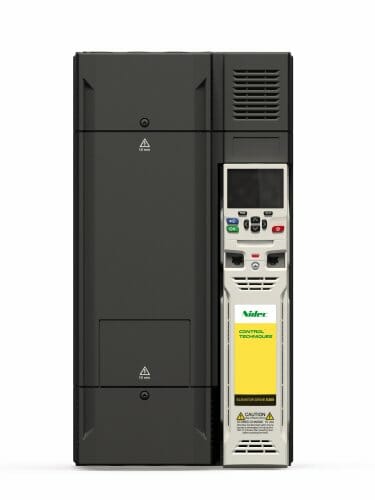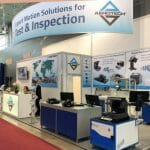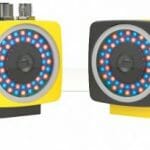Control Techniques’ E300 elevator drives have been selected for a major hospital modernisation programme in Mexico that will eventually see hundreds of new lifts installed across the country. Carlos Silva SA – a Barcelona-based elevator control specialist – won the tender to supply 50% of the elevator control systems required in the first phase of the modernisation programme. After many years of successfully using previous-generation inverters from Control Techniques, they chose the latest E300 drives for this new project.
Mexico recently embarked on a project to fully modernise many of its public city hospitals including those in Mexico City, Guadalajara, Tampico, Toluca, Merida, Ciudad Valles, Ensenada, Nuevo Leon and Chihuahua. The new lifts for these hospitals have to fulfil a varied range of criteria, such as low and high speeds, small and large cabins, single or multi-cabin groups and few or many stops. The brief requires the elevators to be able to cope with high traffic on a 24/7 basis and have to be appropriate for the use of both staff and the general public. Moreover, the lifts have to operate with outstanding reliability in the high temperatures, humidity and altitude associated with most Mexican cities.
“Control Techniques is one of two inverter manufacturers we use as standard. We are particularly impressed with the E300 elevator drive because it is able to offer better comfort levels, providing tight motor control at all speeds, in all situations,” explains Josep Oliva, Engineer at Carlos Silva.
In the elevator industry, ride experience is the true test of quality. Thanks to the unique motor-control algorithm and microprocessor technology within the E300 elevator drives, ride comfort is assured. Be it standard AC induction motors or high-efficiency permanent-magnet machines, the fast current loop serves to guarantee vibration-free motor control and smooth cabin movement.
“We also like the easy adaptability of the E300 to any type of encoder,” adds Mr Oliva. “As a result, we only need to change a parameter value rather than a whole encoder board.”
The flexible built-in encoder interface on the E300 supports 16 different encoder types without the need for additional interface cards. Incremental encoders (such as AB and SC), absolute encoders (SC.SSI, SC.EnDat, SC.Hiperface, SC.SC and SC.BiSS), and absolute comms encoders (EnDat and BiSS) are all supported out-of-the-box.
Carlos Silva has been using Control Techniques products since the early 1990s, including the previous-generation Unidrive SP. In comparison with previous-generation drives, Mr Oliva likes the E300 with its full range of elevator functionality integrated in the base firmware, as it avoids the need for additional cartridges. Other features admired by the Carlos Silva team include the Safe Torque Off [STO] input as it allows them to go without the two motor contactors, and they are also impressed by the advanced static auto-tune function.
Control Techniques drives offer contactorless operation in elevator applications. The EN81-20, EN81-50 TÜV certified STO function provides a highly dependable method for preventing the motor from being driven. The benefits of switching to a contactorless solution include simplified electrical installation, reduced EMC issues, less acoustic noise, improved system reliability and lower system costs.
Regarding static auto-tune, this function ensures encoder offset detection and optimum current-loop configuration without the need to lift the brake or de-rope the system, significantly speeding up the commissioning process.
“Importantly, Control Techniques helped us during the size selection process for these projects, minimising the risk of future problems as a result of the challenging operating environment,” states Mr Oliva. “In fact, whenever we are developing a solution for a project, we always get good advice from Control Techniques regarding the features and functionality of their inverters.”
To date, 78 elevators have been delivered as part of the hospital project’s first phase, although there are potentially more than 5000 to install in total throughout the lifetime of the entire project.
“We are happy with the result of the first phase and happy with the performance of the inverters, which help us comply with the new EN81-20 regulations concerning safety rules for the construction and installation of lifts. We’ve had no problems whatsoever, says Mr Oliva,”
Due to the hospital project’s success to date, Carlos Silva recently became the provider of elevator controls for a second major project in Mexico. This project entails the installation of 75 elevators in 18 stations on a new urban train line in Guadalajara.
“The requirements for the train station lifts are completely different,” explains Mr Oliva. “For instance, all lifts operate at the same speed, with a maximum of three stops. However, we have again specified the E300 drive from Control Techniques to ensure high levels of ride comfort, robustness and reliability.”
Control Techniques, a Nidec company, is a world leader in the design and production of electronic variable speed drives for the control of electric motors. Founded in 1973, the company has headquarters in Newtown, Wales. It has dedicated production and R&D sites globally, along with Automation Centres in 45 locations around the world.
For more information, visit www.ControlTechniques.com





